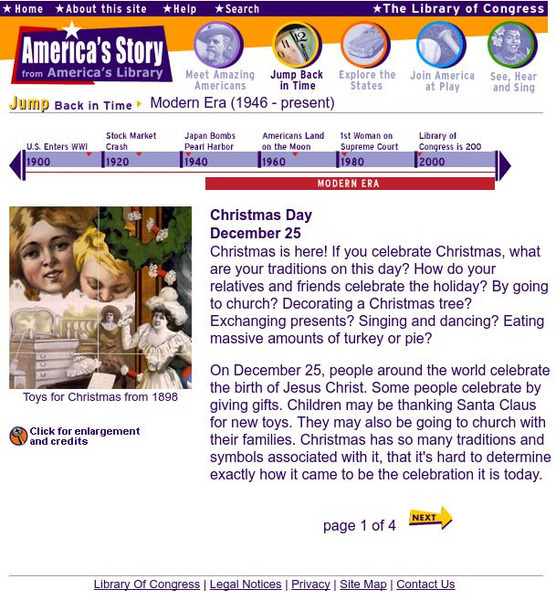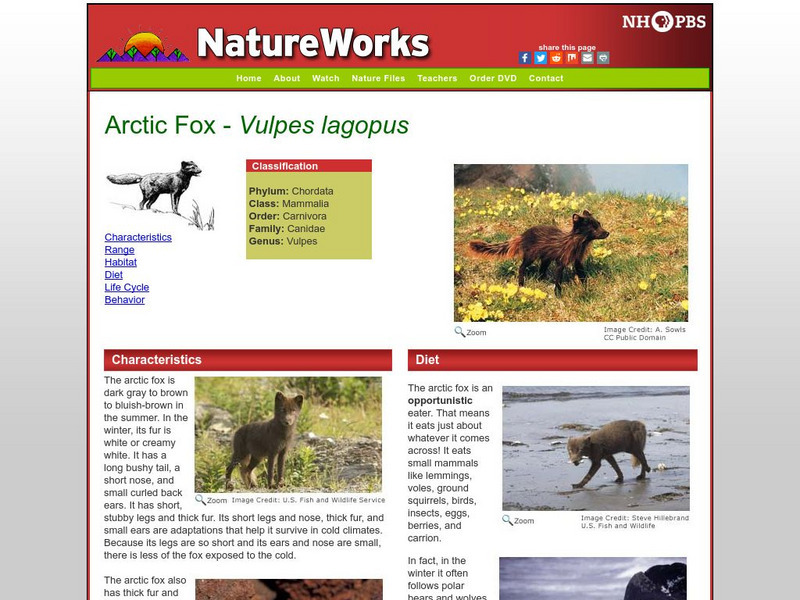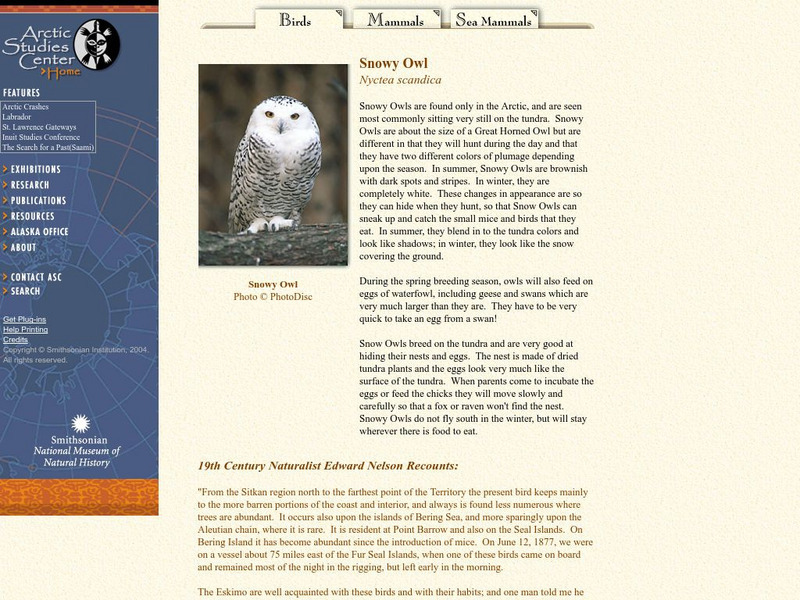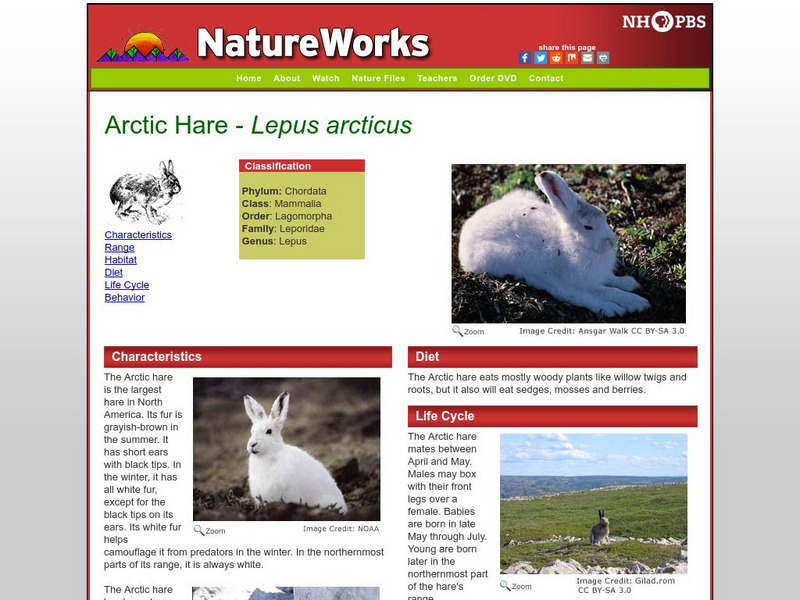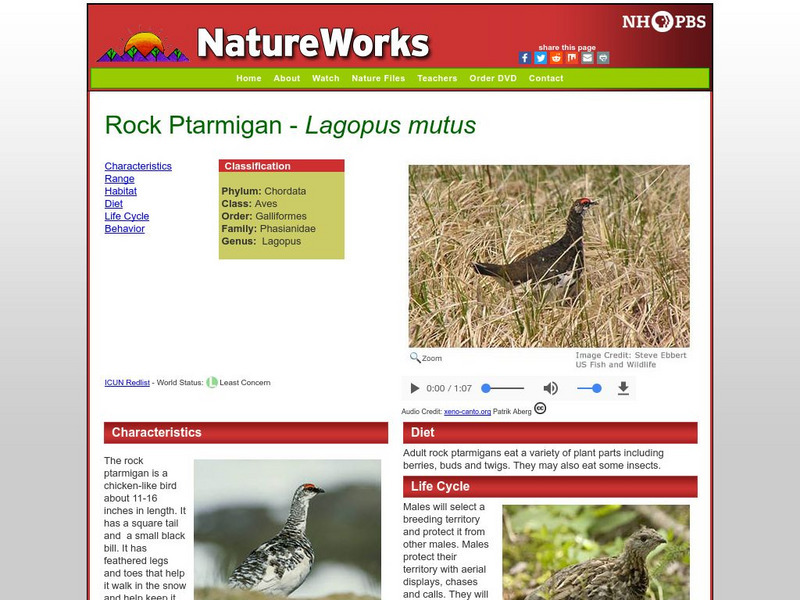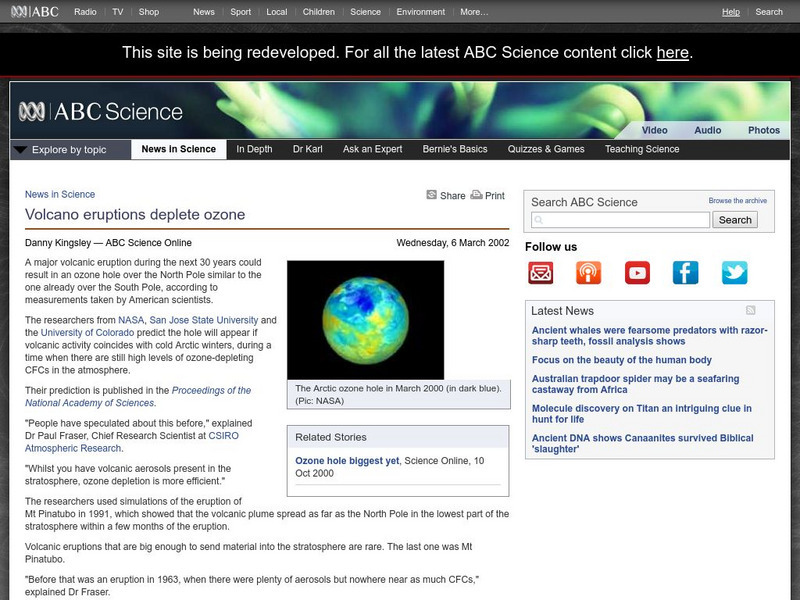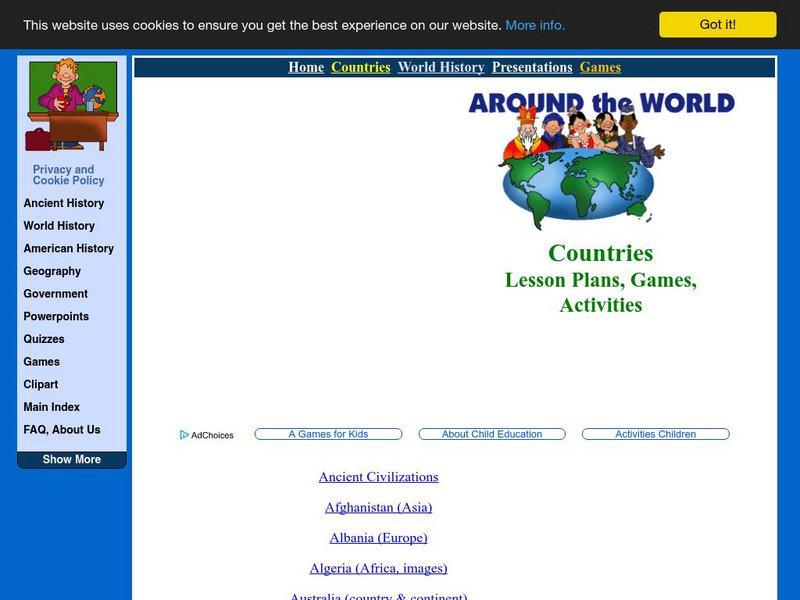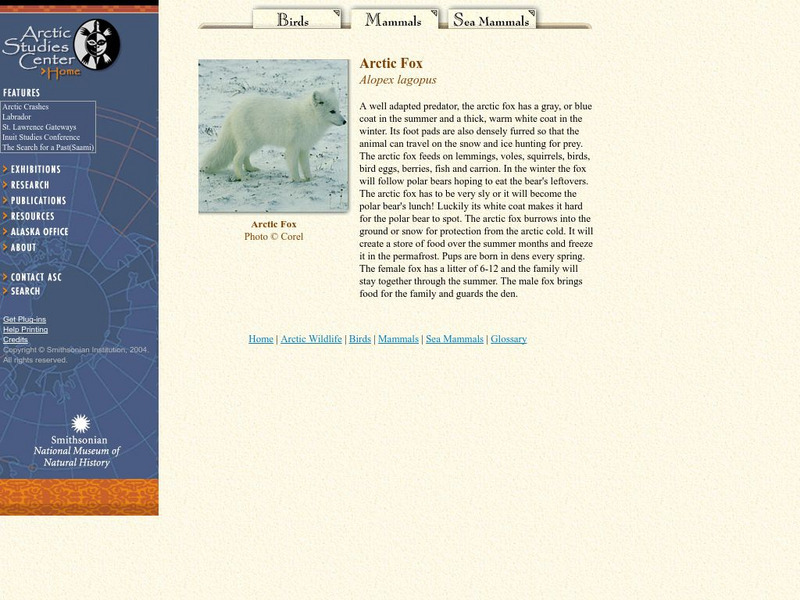Hi, what do you want to do?
World Wildlife Fund for Nature
Wwf: Our Earth: Ecoregions: Habitats: Polar Regions
A simple introduction and overview of the polar regions. Includes a link to information about animals that live in a polar habitat.
Missouri Botanical Garden
Missouri Botanical Garden: Tundra Animals
Explore this comprehensive resource on the birds and mammals of the tundra. This resource features information such as diet, class, order, size, habitat, conservation range and the like.
Smithsonian Institution
National Museum of Natural History: Arctic Studies Center: Lemmings
This Smithsonian website has a brief, but thorough, article on the Lemmings that also includes a picture and a quote from naturalist Edward Nelson.
Library of Congress
Loc: America's Story: Christmas Day, December 25
Christmas traditions are unique to each family. But we share a common origin of this special holiday. Learn about the fundamentals of this celebration at this Library of Congress site.
PBS
Nh Pbs: Nature Works: Arctic Fox
Learn more about the arctic fox through this clear and concise site. This resource features photos, characteristics, behavior information and more about this fascinating mammal.
Smithsonian Institution
National Museum of Natural History: Snowy Owl
This Smithsonian website has a brief, but thorough, article on the Snowy Owl that also includes a picture and an extensive quote from the 19th Century naturalist Edward Nelson.
PBS
Nh Pbs: Nature Works: Polar Bears
This site created by NatureWorks focuses on the Polar Bears. The content of this resource includes a look at this species' characteristics, range, habitat, diet, behavior and life cycle.
PBS
Nh Pbs: Nature Works: Arctic Hare
Explore the world of the arctic hare through this clear and concise site. Students will learn more information on the characteristics, range, habitat, food, reproduction and behavior of this furry creature through this resource.
PBS
Nh Pbs: Nature Works: Rock Ptarmigan
Discover how the Rock Ptarmigan lives in the Tundra when you check out this site. This resource features photographs, information on characteristics, life cycle and more.
Curated OER
Athropolis: Map of the Arctic
This is a useful map for orienting students to where the Canadian Arctic lies in relation to other Arctic countries. The centre of the map is the North Pole. Clicking on the map brings up weather reports for various locations.
Curated OER
Educational Technology Clearinghouse: Maps Etc: North America, 1858
A map from 1858 of North America showing the boundaries at the time for Russian America (Alaska), Greenland, British America or New Britain, Canada East and Canada West, the United States, Mexico, Central America, and the West Indies...
Curated OER
Etc: Maps Etc: Plan of the Movements at Concord, 1775
A plan of the Battle of Concord, Massachusetts, at the opening of the American Revolutionary War (April 19, 1775). Explanation of the Plan: (1) Lexington Road; (2) Hills and high land where the liberty pole stood; (3) center of the town,...
Encyclopedia Britannica
Encyclopedia Britannica: Matthew Alexander Henson
This entry from Encyclopedia Britannica features Matthew Alexander Henson, an American black explorer who accompanied Robert E. Peary on most of his expeditions, including that to the North Pole in 1909.
Australian Broadcasting Corporation
Australian Broadcasting Corporation: News in Science: Volcano Eruptions Deplete Ozone
From ABC News in Science, this March 2002 article describes the ozone depletion from volcanoes. According to research, a hole in the ozone layer could form over the North Pole due to one more major eruption.
Other
Boat Safe Kids: Longitude and Latitude
This website starts at the very beginning and explains how round globes are transferred to flat maps. Then they explain the use of longitude and latitude.
Lin and Don Donn
Lin and Don Donn: Countries and Continents
This resource provides links to ideas and for teaching about the Arctic Circle and about the Antarctic. There are also links to additional sites.
Smithsonian Institution
National Museum of Natural History: Arctic Studies Center: Arctic Fox
This site takes a brief look at the Arctic Fox, focusing on this animal's adaptations to the harsh climate of its environment.
Exploratorium
Exploratorium: Global Climate Change: Cryosphere
Examine the effects climate has on the snow and ice covered cryosphere and see live data gathered from the North and South Poles.
Curated OER
Science Kids: Science Images: Aurora Borealis, Northern Lights
The aurora borealis (also known as the northern lights) is a spectacular light display that can be seen at night in regions near the North Pole (auroras can also be seen near the South Pole). Auroras occur because of charged particles...
Curated OER
Educational Technology Clearinghouse: Clip Art Etc: Salomon Auguste Andree
(1854-1897) Swedish balloonist lost while trying to reach the North Pole in 1897.
Curated OER
Educational Technology Clearinghouse: Clip Art Etc: Robert E. Peary
(1856-1920) "An American Arctic explorer, famed as the discoverer of the North Pole." -Foster, 1921
Curated OER
Finding the Two North Poles
Very simple directions for making a sundial and a question and answer section that explains why and how a sun clock works.
Science and Mathematics Initiative for Learning Enhancement (SMILE)
Smile: About Magnets (Lesson Plan)
This site provides a lesson plan which includes a hands-on activity about magnetism and magnetic fields. Parts of the plan would be easily adaptable as a student project (for any grade level).








